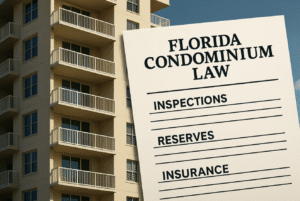1 big thing: 🤫 DOJ wants REALTORs quiet on commissions
At a status hearing on the Nosalek commission lawsuit, a Department of Justice attorney said that the DOJ believes “offers of compensation should not be made anywhere, but certainly not the on the MLS.”
Why it matters: DOJ attorney Jessica Leal’s remarks suggest the agency will likely move full steam ahead on additional changes to real estate commissions nationwide.
Context: In 2020, Boston-area home sellers alleged in a lawsuit that MLS Property Information Network (MLS PIN) and four other brokerages, including Keller Williams and RE/MAX, conspired in a system of coupled commissions.
-
Home sellers said the system allowed agents and brokers to charge high, fixed rates and did not allow buyers to negotiate.
-
The latest settlement agreement in the Nosalek suit would allow both offers of compensation and commission negotiations through the MLS.
DOJ rejected the Nosalek and MLS PIN settlement agreement, finding that the proposed rule changes were insufficient to protect consumers.
-
The warning signs were there last fall when the DOJ said it had “significant concerns” about the June 2023 settlement.
-
This February, the DOJ issued a statement of interest in the lawsuit, supporting an outright prohibition on cooperative compensation.
Is the rejection a sign of further DOJ involvement? Some observers think it portends DOJ intervention in the recent National Association of Realtors settlement agreement.
-
Although Leal called the NAR’s nationwide settlement agreement “an improvement,” she added that the DOJ was expressing neither support nor disapproval of the settlement at this time.
-
Leal also noted that the DOJ has not yet decided whether to file a statement of interest in the Sitzer-Burnett agreement, which resulted in a $1.78 billion judgment against NAR.
-
This equivocation clearly means an intervention is still on the table.
The bottom line: The DOJ appears determined to decouple buyer-broker compensation. This would have far-reaching consequences across the real estate industry, introducing price competition in agent and broker compensation and slowing down the transaction velocity.
2. Challenge to restrictions on Chinese buyers

A federal appellate court will soon rule on a Florida law that restricts Chinese nationals from buying real estate near military installations, airports, and other infrastructure.
What it means for real estate professionals: The law includes penalties for sellers and agents who violate it. It’s reportedly had a chilling effect on the market.
The law: Signed into law by Governor Ron DeSantis about a year ago, it affects Chinese citizens “domiciled” in China without U.S. citizenship or permanent residency status, prohibiting them from:
-
Buying property within 10 miles of U.S. military installations and other infrastructure
-
Buying agricultural land.
Yes, but: There’s some confusion over the meaning of the term “domiciled.” Real estate professionals are left to decide on their own whether to accept the risk of selling to Chinese buyers.
Not only Chinese buyers: The law also restricts “foreign principals” from other “countries of concern” — Cuba, Venezuela, Syria, Iran, Russia, and North Korea.
-
Still, the harshest penalties are reserved for Chinese nationals—and those who sell them real estate.
What the plaintiffs say: Four Chinese citizens who live in Florida are arguing that the state is “unlawfully restricting housing for Chinese people” in violation of equal protection and due process under the law as well as the Fair Housing Act.
-
They also allege that the law undercuts the power of the president to regulate foreign affairs.
What the state says: Florida maintains that the law is aligned with the Biden Administration’s concerns over national security, notably about threats posed by the Chinese Communist Party.
The lower court and appeal: Trump-nominated U.S. District Judge Allen Winsor ruled against the plaintiffs, finding that the Chinese citizens had not proven an “unlawful animus” based on race in the passage of the law.
-
What’s next: The three-judge panel of the 11th Circuit Court of Appeals has heard oral arguments but hasn’t said when it will issue a decision.
The bottom line: This case is critically important for the Chinese community in Florida and the state’s real estate professionals, of course — but it’s also being watched nationwide as other states have enacted or are considering similar laws.
Go deeper: Historian Heather Cox Richardson traces the history of Chinese exclusion laws since 1882. Substack

I sat down with Charles Bernadeau, a multifamily housing entrepreneur, to get his tactics and strategies for finding, evaluating, and financing deals, putting together partnerships, and operating a multi-state, multifamily real estate-holding empire.
Listen in or watch on your favorite channel.
3. Catch up fast

-
A Haines City title agent is sentenced to 3 years in prison and over $6.6 million in restitution for a mortgage fraud scheme. The Legal Description
-
The top 7 landlord-friendly states. Bigger Pockets
-
CFPB launches inquiry into mortgage closing “junk fees,” and the mortgage and closing industries aren’t happy about it. MPAMag
-
Invesstors are trickling back into the real estate market after two years of sitting on the sidelines. Redfin
-
Four ways that AI and automation can solve workforce challenges. Corelogic
4. Closing Thought

Lawyers are called “counselors” because we counsel clients on the law. But sometimes, our counseling expands into other areas beyond our legal education and experience.
Recently, I found myself counseling a client who is going through a divorce. What started as a conversation about how real property is treated in marital dissolutions quickly moved into discussions of PTSD and a crocheted chicken.
In my first years of practice at a small-town North Carolina firm, I had the (mis)fortune of handling family law, real estate, business law, car wrecks, criminal defense, and general civil litigation.
-
We called it a “threshold” law firm because we’d probably take your case if you could get through the door and over the threshold.
It was in criminal and family law cases (which often go hand in hand) that I learned more about psychology than in any college class I’d taken.
In my first week, I saw an ugly crocheted stuffed hen sitting atop a file cabinet in the head paralegal’s office. I asked her why it was up there.
-
It was the last piece of property a divorcing couple had litigated for two years.
-
Only when the ex-husband remarried did he relinquish the hen to our client, his ex-wife.
-
The ex-wife’s attorney placed the hen on top of the file cabinet to await the client’s retrieval.
A year and a half later, I noticed that the hen was no longer anywhere in the office, so I asked the paralegal where it was.
-
The ex-wife had finally come by the office to pick it up … five years after her divorce had been finalized.
-
Why now? As the paralegal said, “Oh, she got remarried too.”
-
The paralegal, who had been involved in threshold law for decades, explained that the hen represented the last vestiges of their marriage to the couple. So long as they didn’t touch the chicken, there was a chance they’d get back together even though they hated each other.
-
Only once they’d both moved on into new lives with new spouses could they let go of the marriage by letting go of the hen (for the ex-husband) and taking possession of the hen (for the ex-wife).
The bottom line: Lawyers and other professionals recognize that their advice doesn’t exist in a vacuum. They often have to draw on their experience and education in other fields to understand how human nature affects their calculations of clients’ matters.
-
Only then can they recognize the meaning behind the crocheted hens sitting on their office file cabinets.
We hope you found this helpful — any feedback is appreciated and can be shared by hitting reply or using the feedback feature below.
-
Was this email forwarded to you? Subscribe here.
-
Have an idea or issue to share? Email us.
-
Connect with us using your preferred social media and website links for MyLandTrustee and Aspire Legal Solutions.
-
Our mailing address: PO Box 547945, Orlando, FL 32854-7945
-
Our physical address: 1901 West Colonial Drive, First Floor, Orlando, FL 32804
Be on the lookout for our next issue! 👋





